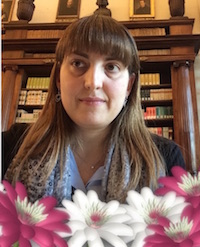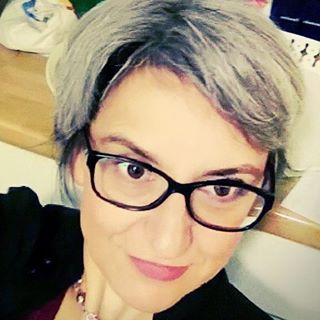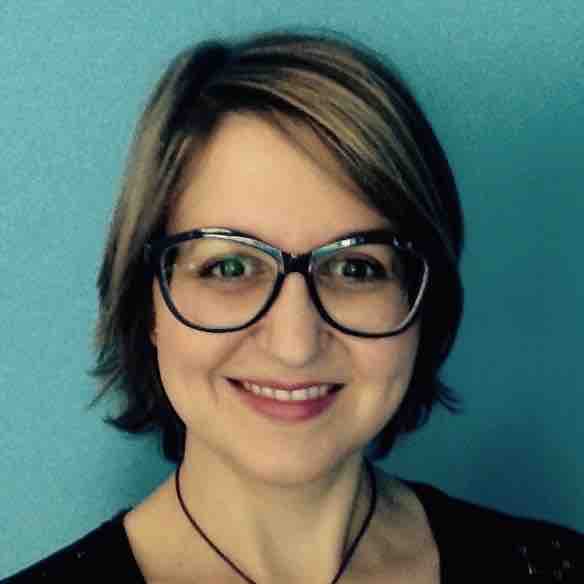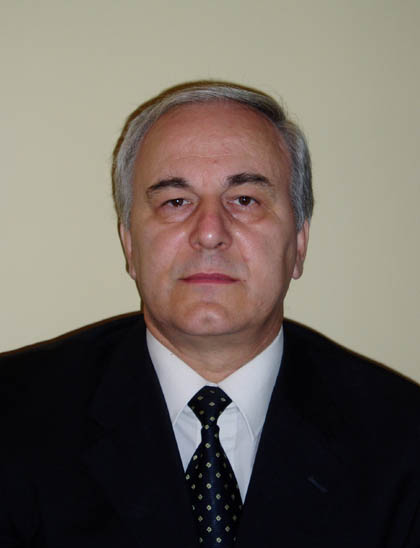Studying at the University of Verona
Here you can find information on the organisational aspects of the Programme, lecture timetables, learning activities and useful contact details for your time at the University, from enrolment to graduation.
Academic calendar
The academic calendar shows the deadlines and scheduled events that are relevant to students, teaching and technical-administrative staff of the University. Public holidays and University closures are also indicated. The academic year normally begins on 1 October each year and ends on 30 September of the following year.
Course calendar
The Academic Calendar sets out the degree programme lecture and exam timetables, as well as the relevant university closure dates..
| Period | From | To |
|---|---|---|
| I SEMESTRE | Oct 3, 2016 | Jan 21, 2017 |
| II SEMESTRE | Feb 27, 2017 | Jun 10, 2017 |
| Session | From | To |
|---|---|---|
| Lingue - SESSIONE INVERNALE | Jan 23, 2017 | Feb 25, 2017 |
| Lingue - SESSIONE ESTIVA | Jun 12, 2017 | Jul 29, 2017 |
| Lingue - SESSIONE AUTUNNALE | Aug 21, 2017 | Sep 23, 2017 |
| Session | From | To |
|---|---|---|
| Lingue - Sessione di laurea invernale | Apr 3, 2017 | Apr 8, 2017 |
| Lingue - Sessione di laurea estiva | Jul 10, 2017 | Jul 15, 2017 |
| Lingue - Sessione di laurea autunnale | Dec 18, 2017 | Dec 21, 2017 |
| Lingue - sessione di laurea invernale | Mar 23, 2018 | Mar 29, 2018 |
| Period | From | To |
|---|---|---|
| Festa di Ognissanti | Nov 1, 2016 | Nov 1, 2016 |
| Festa dell'Immacolata | Dec 8, 2016 | Dec 8, 2016 |
| Vacanze Natalizie | Dec 23, 2016 | Jan 7, 2017 |
| Vacanze Pasquali | Apr 14, 2017 | Apr 18, 2017 |
| Festa della Liberazione | Apr 25, 2017 | Apr 25, 2017 |
| Festa del Lavoro | May 1, 2017 | May 1, 2017 |
| FESTA DEL SANTO PATRONO SAN ZENO | May 21, 2017 | May 21, 2017 |
| Festa della Repubblica | Jun 2, 2017 | Jun 2, 2017 |
| Vacanze Estive | Aug 14, 2017 | Aug 19, 2017 |
Exam calendar
Exam dates and rounds are managed by the relevant Foreign Languages and Literatures Teaching and Student Services Unit.
To view all the exam sessions available, please use the Exam dashboard on ESSE3.
If you forgot your login details or have problems logging in, please contact the relevant IT HelpDesk, or check the login details recovery web page.
Should you have any doubts or questions, please check the Enrollment FAQs
Academic staff
 angela.albanese@univr.it
angela.albanese@univr.it
 birgit.alber@univr.it
birgit.alber@univr.it
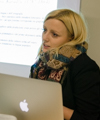
Bradas Marija
 marija.bradas@univr.it
marija.bradas@univr.it
 paolamaria.caleffi@univr.it
paolamaria.caleffi@univr.it
 cecilia.cantalupi@univr.it
cecilia.cantalupi@univr.it
 daniela.carpi@univr.it
daniela.carpi@univr.it
 roberta.meneghel@univr.it
roberta.meneghel@univr.it
 stella.merlin@univr.it
stella.merlin@univr.it
 sara.paolini@univr.it
sara.paolini@univr.it
 alberto.scandola@univr.it
alberto.scandola@univr.it
Study Plan
The Study Plan includes all modules, teaching and learning activities that each student will need to undertake during their time at the University.
Please select your Study Plan based on your enrollment year.
1° Year
| Modules | Credits | TAF | SSD |
|---|
2° Year activated in the A.Y. 2017/2018
| Modules | Credits | TAF | SSD |
|---|
3° Year activated in the A.Y. 2018/2019
| Modules | Credits | TAF | SSD |
|---|
| Modules | Credits | TAF | SSD |
|---|
| Modules | Credits | TAF | SSD |
|---|
| Modules | Credits | TAF | SSD |
|---|
| Modules | Credits | TAF | SSD |
|---|
Legend | Type of training activity (TTA)
TAF (Type of Educational Activity) All courses and activities are classified into different types of educational activities, indicated by a letter.
Introduction to German Linguistics (2017/2018)
Teaching code
4S002966
Teacher
Coordinator
Credits
6
Language
German
Scientific Disciplinary Sector (SSD)
L-LIN/14 - LANGUAGE AND TRANSLATION - GERMAN
Period
Semester 1 dal Oct 2, 2017 al Jan 20, 2018.
Learning outcomes
On successful completion of this seminar students will be able to
- understand and explain the basic concepts of Optimality Theory;
- understand scientific articles related to the topic of the seminar;
- perform simple analyses of linguistic phenomena of German in the framework of Optimality Theory;
- present the results of individual research convincingly and with appropriate presentation tools (power-point, hand-outs, final papers etc.)
Program
Linguistic theories aim to construct models of our human language competence. In this seminar one of these models, Optimality Theory, is presented and discussed in detail. Optimality theory is a modern linguistic theory, which has influenced many fields of linguistics, from phonology, to syntax, to language acquisition. In this seminar, the OT literature with respect to linguistic phenomena of German and Italian is discussed and students will work out simple analyses in this framework.
References
Alber, B. (2014). Optimalitätstheorie. Eintrag in Dürscheid, Christa & Schierholz, Stefan. Wörterbücher zur Sprach- und Kommunikationswissenschaft. WSK Online. Bd. 1.: Grammatik. 1. Teilband: Formenlehre, 2. Teilband: Syntax. Berlin/New York: de Gruyter.
[a pre-print version of this text can be downloaded from the e-learning platform of the seminar]
An extensive bibliography will be given during the seminar and posted on the e-learning platform of the course.
This course is taught in German.
Examination Methods
The exam consists in oral presentations in class and a short paper written by students on their projects. In the presentations and the paper students will compare linguistic data from German with data from Italian (and/or other languages) and analyze it in terms of Optimality Theory. Students who cannot attend class regularly should contact the teacher for assignment of a specific paper topic.
Type D and Type F activities
To discover all the teaching activities accredited by the foreign teaching college click here
Career prospects
Module/Programme news
News for students
There you will find information, resources and services useful during your time at the University (Student’s exam record, your study plan on ESSE3, Distance Learning courses, university email account, office forms, administrative procedures, etc.). You can log into MyUnivr with your GIA login details: only in this way will you be able to receive notification of all the notices from your teachers and your secretariat via email and soon also via the Univr app.
Student login and resources
Gestione carriere
Assegnazione tutore
Attività accreditate D/F
Calendario didattico dettagliato
Cambio lingua curriculare
Competenze informatiche
Competenze linguistiche (prima e seconda lingua)
Competenze linguistiche in triennale (terza lingua CFU F)
Compilazione del piano didattico
Corso di Lingua portoghese
Erasmus+ e altre esperienze all'estero
Linguistic training CLA
Presentazione dei corsi di studio e Open day
Graduation
Saperi minimi
Stage e tirocini
Le attività di stage sono finalizzate a far acquisire allo studente una conoscenza diretta in settori di particolare interesse per l’inserimento nel mondo del lavoro e per l’acquisizione di abilità professionali specifiche.
Le attività di stage sono svolte sotto la diretta responsabilità di un singolo docente presso studi professionali, enti della pubblica amministrazione, aziende accreditate dall’Ateneo veronese.
I crediti maturati in seguito ad attività di stage saranno attribuiti secondo quanto disposto nel dettaglio dal “Regolamento d’Ateneo per il riconoscimento dei crediti maturati negli stage universitari” vigente.
- Tutte le informazioni in merito agli stage per futuri studenti sono disponibili alla pagina Stage e tirocini.
- Tutte le informazioni in merito agli stage per studenti iscritti sono pubblicate in MyUnivr - come fare per - stage e tirocini.
- Tutte le informazioni in merito agli stage per le aziende sono disponili alla pagina Stage e tirocini per azienze.
Ulteriori informazioni al seguente link https://www.univr.it/it/i-nostri-servizi/gestione-carriere-studenti-lingue-e-letterature-straniere/stage-e-tirocini-lingue-e-letterature-straniere
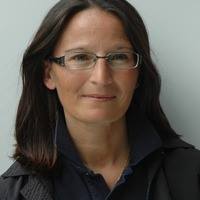
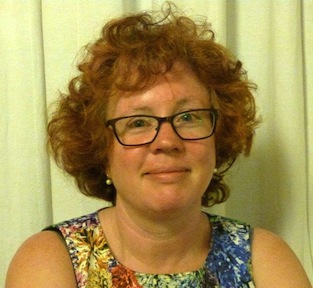

 +39 045802 8409
+39 045802 8409














